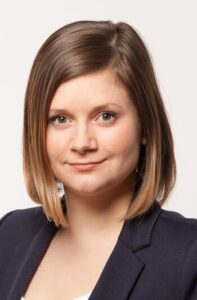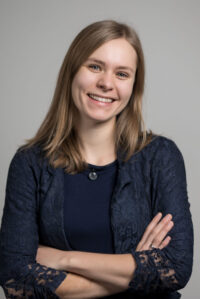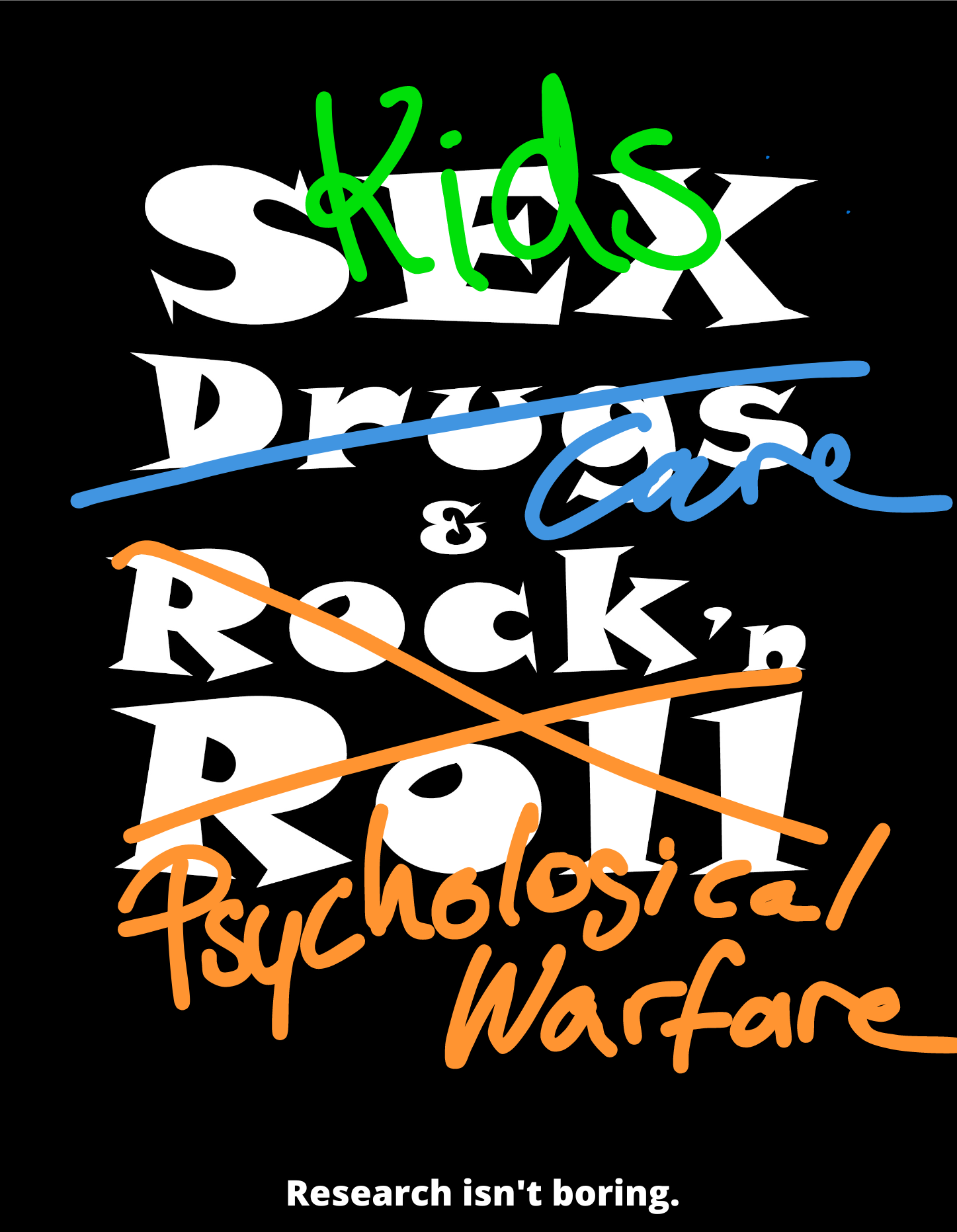
Twin research, young people at war, conspiracy mentality, care, unravelling intelligence, 7th October attacks, home visits by teachers, psychological warfare, mental health, children's sport, political rhetoric in Poland...We are once again presenting an exciting variety of research topics from the Faculty of Social Sciences, Media and Sport at Johannes Gutenberg University Mainz.
CRiSS - Contemporary Research in Social Sciences is a recurring lecture series that takes place every summer semester. Members from all disciplines of the faculty - communication science, educational science, political science, psychology, school science, sociology and sports science - present their current research projects. The lectures are held in English in order to facilitate an international exchange - with international students and guest researchers.
All are welcome!
Wednesdays 16.15 - 17.45, room 01.611 GFG (The accompanying tutorial for exam preparation takes place on Thursdays from 14.15-15.45 in 02.751 (GFG))
CRiSS Programm 2024
Important note: Schedule changes (updated 13.05.2024)
- Please note that the lectures of Lisa Henke (originally 22nd of May) and Nicoletta Eunicke (19th of June) have changed dates. Nicoletta Eunicke's lecture will be held on the 22nd of May and Lisa Henke's lecture on the 19th of June.
- Please note that the lecture of Annika Edelmann on 03.07.2024 has been cancelled.
 24.04.2024 Sociology
24.04.2024 Sociology
Marie Schlosser
Cultural participation and cultural preferences: Decomposing genetic and environmental contributions using German twin data
Besides individual resources, socialization influences are key in explaining inequalities in cultural participation, with the parents playing the most prominent role. In sociological studies on cultural participation, genetic factors are rarely discussed. Rather, it is assumed that family influences are predominantly a result of socialization. However, from a causal analytical perspective, it can be argued that genetic factors introduce a potential confounding, as they influence both parents' and children's characteristics. Neglecting genetics may lead to an overestimation of the effect of parental socialization. By using a genetically informed design, it is possible to separate environmental from genetic contributions. The German TwinLife study provides a database containing information on the cultural behavior of monozygotic ("identical") and same-sex dizygotic ("fraternal") twins. Using ACE models, decomposition analyses are carried out for cultural participation. By comparing twins with different zygosity, one can identify variance components and distinguish between heritability, shared environments, and unshared environments.
Learn more about Marie Schlosser
 08.05.2024 Education Science
08.05.2024 Education Science
Daniela Lamby
Youth in Ukraine: A new generation between resignation and empowerment
The development of an own identity is a formative process characterized by crises. Global, national and local crises intensify this individual pressure to act. Against this background this lecture scrutinizes how young people in transformative societies develop competence by way of example on young Ukrainians. The analysis is based on a representative study on 2.016 youngsters in Ukraine in the year 2017. Findings show how differently young people act, built their own reality of life and their own self-image. Central for the main discussion is to have a look on the cultural-historic, political and social-normative developments and their meaning for the individual conception on values and political positioning of young Ukrainians.
Learn more about Daniela Lamby
 15.05.2024 Psychology
15.05.2024 Psychology
Tisa Bertlich
Conspiracy Mentality – A Thing for the Adults?
As many of us have noticed during the COVID-19 pandemic, societal crises, such as pandemics, natural catastrophes, and terror attacks, are a breeding ground for new conspiracy theories. However, not everybody is equally inclined to believe in such conspiracy theories. While some people are likely to believe in a vast variety of conspiracy theories, others are generally skeptical of them. This general propensity to believe or disbelieve in such theories is also called conspiracy mentality. Research shows that in adulthood, conspiracy mentality is quite stable and difficult to change. Therefore, in her lecture, Tisa Bertlich will take a look at conspiracy beliefs during adolescence. She will talk about whether adolescents already believe in conspiracy theories, what we know about conspiracy mentality during this developmental phase, and which factors might contribute to the formation of conspiracy mentality during this time.
Learn more about Tisa Bertlich
 22.05.2024 Education Science
22.05.2024 Education Science
Nicoletta Eunicke
„I didn't even know he was coming for a home visit.” A Situational Analysis on Positions of Primary School Aged Childrens towards Teachers Home Visits
In educational policy debates, there is a desire to intensify parental work in elementary schools, with home visits being a promoted practice for fostering home-school partnerships. While home visits are seen as beneficial for academic outcomes, children's perspectives on these visits remain unexplored. This study examines children's positions on teacher home visits and their relation to other actors in home-school relationships. Qualitative interviews were conducted with children (average age 8–9, n=18) and school staff (n=8) from five schools in Germany. Findings suggest that children often associate home visits with shame and vulnerability, though they can also find empowerment. The study reveals a disconnect between the assumed presence of the 'whole child' at home and the children's actual experiences. The request to 'open up' the home and family is shown to be hierarchical, reflecting generational and institutional dynamics.
Learn more about Nicoletta Eunicke
 05.06.2024 Psychology
05.06.2024 Psychology
Jan Göttmann
Memory Matters: Unraveling Intelligence through Neurocognitive Psychometrics
Measuring individual differences in working memory processes is challenging, particularly if one is interested in the question of which specific aspect of working memory capacity is most relevant for differences in intelligence. Through the lens of mathematical models, we are capable to decompose and isolate working memory processes of interest such as the formation of bindings between context and information or the filtering irrelevant information.By conducting carefully designed experiments to estimate such models, we aim to understand both the intricacies of working memory processes as well as their underlying neural components simultaneously, utilizing Electroencephalography. Through this neurocognitive psychometric approach, we strive to unravel the mysteries surrounding individual differences in memory and intelligence, paving the way for a deeper understanding of the human mind. Join us as we delve into the relationship between working memory and cognitive abilities, shedding light on their complex interplay and providing valuable insights into memory and intelligence.
 12.06.2024 Communication Science
12.06.2024 Communication Science
Baruch Shomron
October 7 in real-time: When the mass media went off script
Early Saturday morning October 7th, Hamas and other Palestinian terrorist organizations from the Gaza Strip initiated a surprise attack on neighboring Israel. During the first few hours of the attack, the Israeli mass media found itself in the dark with formal traditional sources inaccessible or uninformed. However, by using non-traditional reporting techniques, the Israeli media succeeded in making sense of the happenings early on and played an important role in informing civilians and security forces alike on both the big picture and the specific details of the attack. Indeed, the media served as one of the main sources of information for civilians and security forces, enabling them to make informed real-time life-saving decisions. This lecture will focus on the Israeli media and the role they played in the first hours of the attack.
Learn more about Baruch Shomron
 19.06.2024 Sociology
19.06.2024 Sociology
Lisa Alexandra Henke
Lost Immediacy - A Theory of Care
In international discourses, care is no longer understood as an intentional, genuinely human act, but rather as a collective, socio-material practice in which not only humans participate. It is a widespread assumption that also animals, substances, artifacts etc. are generally involved in care practices. Against this general tendency towards de-limitation, the lecture aims to reformulate the specific nature of human care, its dimensions and its foundations. The presentation is based on the following questions: Which theoretical discourses on care can be reconstructed and how are they related to each other? What relationship between the self and the (surrounding) world is revealed in discourses and practices of care? To what extent do the individual forms of care differ from one another and how can they be characterized? On a theoretical-conceptual level, this work refers to posthuman considerations and approaches from philosophical anthropology.
Learn more about Lisa Alexandra Henke
 26.06.2024 Political Science
26.06.2024 Political Science
Olesia Zvezdova
Psychological Warfare: From Individual Influence to Regional Security
Current events in the world show that the population of the European continent is on the threshold of changes in the field of international security, including psychological security. Over the past decade, we have witnessed a comprehensive information and psychological warfare that has a destructive and destabilizing effect on societies in general and on the psyche of each individual in particular. During the Russian-Ukrainian hybrid war (since 2014), the Russian Federation continued to actively use various psychological mechanisms to influence the Ukrainian population, the European Union and even its own population.
Learn more about Olesia Zvezdova
 03.07.2024 Psychology
03.07.2024 Psychology
Annika Edelmann
Mental Health Literacy – What it is, how we can measure it and why it matters
Mental health is essential for quality of life, performance and social participation. Impairments of mental health are widespread, ranging from mild impairment of mental well-being to severe mental disorders. Mental health literacy encompasses knowledge and beliefs about mental disorders that contribute to their recognition, management or prevention, and thus includes the ability of people to make appropriate mental health decisions in everyday life. By providing knowledge and skills, mental health literacy increases people's self-efficacy and thus encourages responsible, health-promoting behaviour and the use of support services.
In addition to an introduction to the concept, the opportunities and challenges of assessing mental health literacy are presented, as well as insights into different promotion possibilities.
Important note: The lecture has been cancelled. Unfortunately, there will be no lecture on this day.
Learn more about Annika Edelmann
 10.07.2024 Sports Science
10.07.2024 Sports Science
Julia Grob
Preconditions for Physical Activity in the Life of Children: Influence of Individual Needs on Participation
The most significant conflict in sport for children and adolescents today is to balance traditions on the one hand and individual needs on the other. It is necessary to consider the individual interest in the offered sport culture to enhance a long-term sport participation, either to detect talents or to let pedagogical work be effective. This study applies a qualitative research design, which has been conducted within the framework of the research project InterTalent. The results show central topics, which seem to impact the current sport participation and the meaning attributed to sports by children such as digitalization, interest in competing or parental influence. Furthermore, the diverse and varying needs as well as interests among children regarding sports are depicted in detail. Consequently, it is indicated how adequate and appealing sport offerings for every child could be designed to enhance lifelong sport participation.
 17.07.2024 Sociology
17.07.2024 Sociology
Marcin Deutschmann (University of Opole, CRiSS Guest Speaker)
Democratic Shift? Rhetoric and populism in Polish political discourse
On October 15th, 2023, the pro-European opposition won the Polish election, defeating the United Right nationalist coalition of conservative parties. The liberal media (not only in Poland) framed this change as a democratic shift.This lecture will delve deep into the subject, using rhetorical and historical discourse analysis tools. The aim is to provide a comprehensive understanding of the origins and consequences of this change for Polish public discourse, politics, and democracy. The empirical base for the lecture will be various materials collected from Polish media outlets, political speeches, and social media.
The speaker will present the characteristic features of Polish rhetoric and discuss them in the context of recent political change. The focus will be on populism, which led to surprising rhetorical volte-faces when power relations changed. During the lecture, we will consider whether populism-free rhetoric is even possible in times of social media and political polarisation.
Learn more about Marcin Deutschmann
Registration to the CRiSS lecture is possible via Jogustine - regular JGU students and RMU students can register by themselves. Exchange students can send an email to sowiso@uni-mainz.de including their student ID-number (Matrikelnummer) and the name of the course they wish to register for ("CRiSS: Lecture" OR "CRiSS: Lecture + Tutorial").
Archive







